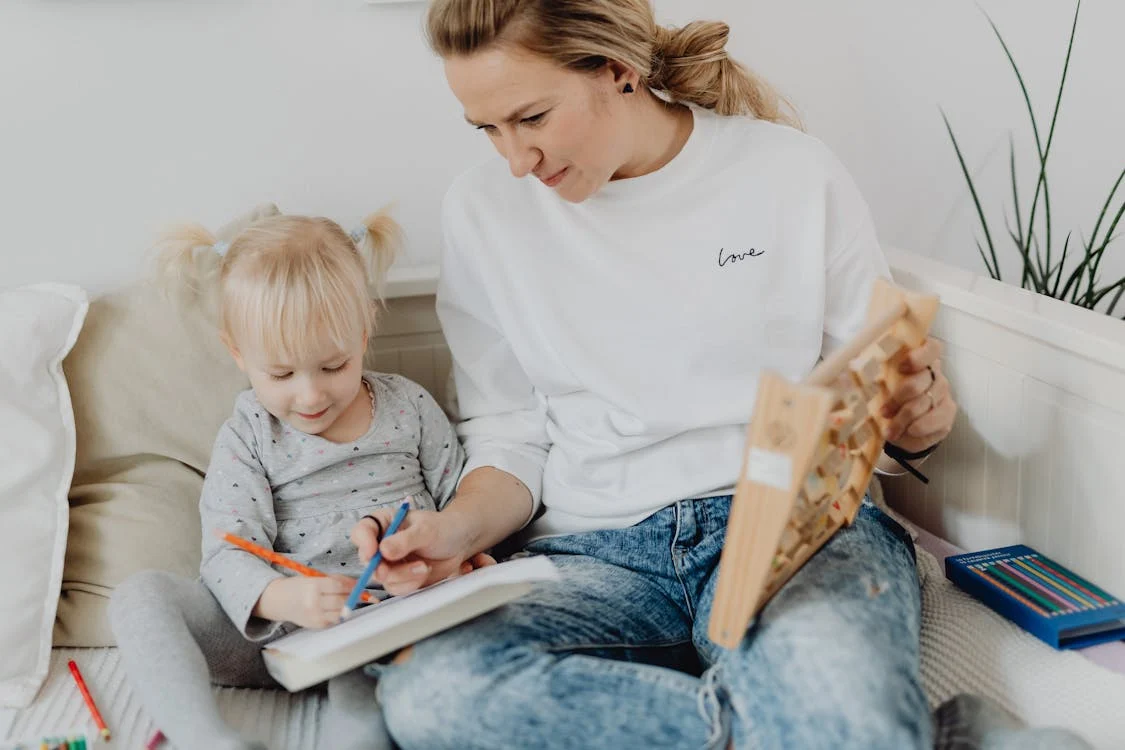Is your little one about to start school and you’re wondering if they’re ready? It can feel a little daunting knowing that they are about to join ‘school’. Or perhaps you work in a childcare or an educational setting and you want to ensure your little ones are well-prepared for their next step in child education. You may have heard the term ‘school readiness’, but what does it mean, and how do you know if your child is ready to start school or nursery? Children have the potential to become school ready when families, early years providers and schools work together to support the development of their confidence, resilience and curiosity.
What does ‘school ready’ or ‘school readiness’ mean?
Being ‘school ready’ isn’t just about having the right shoe on the right foot, eating breakfast, and arriving on time. A huge part of school readiness is about a child’s physical, social, emotional, and cognitive skills.
Without knowing it, your child will already have many of these skills. For them to be able to integrate into school-life, they will put into practice their skills around taking risks, asking questions, taking turns and vocalising choices.
Don’t worry if your child can’t do all of these just yet – it’s just a guide. After all, children start school with a wide range of experiences and abilities and they will progress at their own level through the school year. Once they’re in the school environment they’ll also learn a great deal from their peers.
Embarking on the educational journey is a pivotal milestone in a child’s life, and school readiness plays a crucial role in shaping this experience. As parents and educators, understanding the multifaceted nature of school readiness is key to guiding our children towards a successful and fulfilling academic journey. School readiness transcends beyond academic knowledge; it encompasses physical well-being, emotional maturity, social skills, and cognitive abilities. It’s about preparing our little ones to thrive in a structured learning environment, where they not only grasp letters and numbers but also learn to interact, share, and express themselves.
1. Embracing the Whole Child: A Holistic Approach to Readiness
School readiness isn’t just about knowing the alphabet or counting to ten. It’s about nurturing the whole child. This means paying attention to their physical health, ensuring they’re well-rested, nourished, and physically active. Emotional and social development is equally important – children should be able to express their feelings appropriately, empathize with others, and form positive relationships.
2. The Role of the Environment: Home, School, and Community
A supportive environment is pivotal. At home, engage in activities that spark curiosity and encourage learning, like reading stories together or exploring nature. Schools should be ready to meet diverse learning needs, providing an inclusive and adaptable environment. Community support, through quality preschool programs and health services, also plays a significant role.
3. The Journey of Learning: Every Child’s Unique Path
Each child’s journey to school readiness is unique. Some may excel in certain areas while needing support in others. It’s important to recognize and celebrate these differences, providing individualized support where needed. Remember, readiness is not a race; it’s a gradual process of growth and development.
How to prepare your child for starting school
Preparing your little one for school will have a positive impact on how well they settle in and interact with other children. Many of the skills required to be ready for school can be developed through fun activities that you can do together at home or when you’re out and about. So, what can you do to better prepare you and your child for this big step?
1. Talk to your child about starting school
Bring the topic of starting school into daily conversations. Perhaps you could ask your little one what they expect from school or what they hope it’ll be like.
You could tell them about your school days and show them pictures of you on your first day or with your school friends. Even if you didn’t enjoy school, it’s important to be positive about it around your child so they feel more relaxed about their new adventure.
New experiences can make us a bit nervous as well as excited, so if you or your little one has any worries about starting school do have a chat with their teacher.
2. Read books together about school
Swap out one of your bedtime books for one that talks about starting school. Whether your little one is excited or nervous to start school, reading fun stories about school adventures might help them get used to the idea. Visit your local library and ask the librarians if they have any suggestions for you, you might even bump into other families while you’re there!
3. Practise the basic skills they’ll need for starting school
If you can, try to spend some time with your little one each day chatting about what you are doing and listening to them, commenting on colours or counting their stuffed toys. It can be as simple as talking about the colours of the flowers in the park or counting how many stuffed toys they have.
Mark making is another fun activity. It’s a simple way to encourage your little one to draw; whether it’s a dot or a squiggly line, you could doodle together or take a bucket of water and paintbrush outside to get creative, all this helps them with their writing skills.
By incorporating these skills into their daily activities, children will learn through play and begin to understand the world around them during their everyday life.
4. Visit their new school
If possible, try to visit your little one’s new school and ask for a tour. It’ll help them feel at ease and get used to their new surroundings. Some schools even offer ‘settling in’ days which are a great opportunity for your child to get used to their new learning environment.
5. Practise self-care
Being independent is a useful skill when a child starts school, so encourage your little one to do things like getting dressed themselves, blowing their own nose and going to the toilet alone. Make sure you give them plenty of time to practise these important life skills and remember to praise all their efforts, no matter how small, as this will build their confidence.
If your child is not fully confident in going to the toilet alone or getting dressed, don’t worry! Take some time to practise self-care with your little one until they become more confident. There’s no rush and every child progresses at their own speed.
Parents may experience a range of emotions when it comes to their child’s readiness for school. These feelings can vary depending on factors such as their child’s individual development, previous experiences with education, cultural beliefs, and personal expectations. Some common emotions parents might feel include:
- Excitement: Many parents feel excited about their child starting school, seeing it as a milestone in their development and an opportunity for growth and learning.
- Apprehension: Some parents may feel anxious or worried about how their child will adjust to the new environment, make friends, or handle academic challenges.
- Pride: Parents often feel proud of their child’s achievements and accomplishments as they prepare for school, recognizing the effort they’ve put into learning and development.
- Nostalgia: The transition to school can evoke feelings of nostalgia as parents reflect on their child’s early years and how quickly they’ve grown up.
- Concern: Parents may have concerns about their child’s readiness in specific areas, such as social skills, academic abilities, or emotional resilience. They might worry about whether their child will be able to keep up with their peers or handle the demands of school.
- Relief: For some parents, the transition to school brings a sense of relief, particularly if they’ve been juggling work or childcare responsibilities. They may welcome the structure and routine that school provides.
- Guilt: Parents may experience guilt if they feel they haven’t adequately prepared their child for school or if they have conflicting emotions about returning to work or other commitments.
- Anticipation: Parents may eagerly anticipate the opportunities and experiences that school will bring for their child, such as making new friends, exploring interests, and gaining independence.
- Sadness: While many parents look forward to their child starting school, others may feel a sense of sadness or loss as they adjust to the idea of their child spending more time away from home.
- Hope: Above all, parents often feel hopeful about their child’s future and the positive experiences they will have in school. They may look forward to seeing their child learn and grow in new ways.
It’s important for parents to acknowledge and validate their feelings about their child’s readiness for school, seek support from other parents or professionals if needed, and focus on providing encouragement and support to help their child thrive in this new chapter of their lives.
Finally, as parents and educators, our role is to be facilitators and guides. This involves creating enriching learning environments, being responsive to children’s needs, and collaborating to ensure a smooth transition into formal education. School readiness is the first step in a lifelong adventure in learning.
By focusing on the holistic development of our children and supporting them through this transitional phase, we lay the groundwork for a future filled with curiosity, resilience, and a love for learning.
Remember, it’s not just about preparing for the first day of school; it’s about setting the foundation for a lifetime of discovery and growth. As parents and educators, we nurture school readiness by creating enriching environments. Consider seeking guidance from a paediatric clinic in Dubai for comprehensive support in your child’s development journey.













